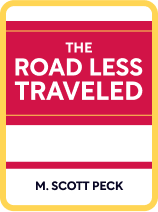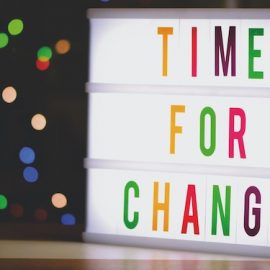

This article is an excerpt from the Shortform book guide to "The Road Less Traveled" by M. Scott Peck. Shortform has the world's best summaries and analyses of books you should be reading.
Like this article? Sign up for a free trial here .
What does an authentic life look like? How is it achieved?
In The Road Less Traveled, psychiatrist M. Scott Peck argues that habitual lying in avoidance of reality ultimately leads to mental illness. On the other hand, an authentic life leads to growth, healthy relationships, and real freedom. He offers five rules for balanced truth-telling that help you navigate this tricky area of life.
Keep reading to learn about living an authentic life.
The Lies We Tell
The required self-discipline for truth-telling is such an overwhelming idea that most people avoid living a truly authentic life. They instead settle for a life of limited vulnerability, limited honesty, and limited visibility. Everyone lies to some extent, but habitual lying (to yourself or others) as a way to avoid the pain or challenge of reality eventually leads to mental illness.
There are two types of lies.
Type #1: Black Lie
This is the traditional lie. It is a knowingly false statement.
Type #2: White Lie
This is a lie that omits an important part of the truth. The intention is not to make a blatantly false statement—but to misrepresent the truth.
White lies can be just as toxic as black lies, and they can prevent you from living an authentic life. They are hard to detect or address because of their covert nature. White lies are also more socially acceptable because many people think lying to avoid hurting others is justifiable, even an act of kindness. This is very common in families. It’s a problem because:
- You think you are protecting people when you tell white lies, but really, you are depriving them of their right to choose how they relate to reality.
- When parents lie by omission to their children, they deprive them of opportunities for growth, knowledge, reassurance, and good role models.
The tricky thing is that lying is sometimes necessary. Or, at least the withholding of the truth is sometimes necessary. Here are some examples:
- Therapists need to be thoughtful about when to reveal observations of their clients. They may withhold an observation until they feel the client is prepared to healthily engage with it.
- Parents need to be thoughtful about how much they tell their children about their relationship. If it’s on the rocks, and they’re considering divorce, they might withhold that piece of information until the idea is more concrete.
- In politics or business, you might need to withhold strong opinions at times in order to serve the greater good or out of respect for those in greater positions of power.
To be successful in many types of environments you will often need to make decisions based on the needs of the whole equally as much as on your individual needs. An important aspect of living an authentic life is balance in this regard.
Rules for a Balanced Authentic Life
Rule #1: Never communicate something that is untrue.
Rule #2: The choice to withhold should always be for the needs of others, and not to serve your own needs. Withholding the truth will always involve some form of lying, therefore, each time you consider withholding, be prepared to engage in this moral dilemma.
Rule #3: Because identifying someone’s needs is a delicate responsibility, you can only make a morally accurate decision in regards to withholding if you are operating with genuine love.
Rule #4: In assessing others from the context of genuine love, you should be assessing whether or not the truth will progress their spiritual growth.
- If it won’t, that is a solid reason to withhold
- If it will, you should not withhold
Rule #5: We usually assume that people can’t handle the truth. When deciding what to do with the truth, you should be aware of the likelihood that you are underestimating the capacities of others.
The benefit of living an authentic life is an experience of continual growth, long-lasting intimate relationships, the knowledge that you are a source of illumination for others (rather than shadow), and ultimately true freedom.

———End of Preview———
Like what you just read? Read the rest of the world's best book summary and analysis of M. Scott Peck's "The Road Less Traveled" at Shortform .
Here's what you'll find in our full The Road Less Traveled summary :
- The four key elements in the path to enlightenment
- The importance of spiritual competence in relation to mental health
- How you can face challenges and grow through hardship






